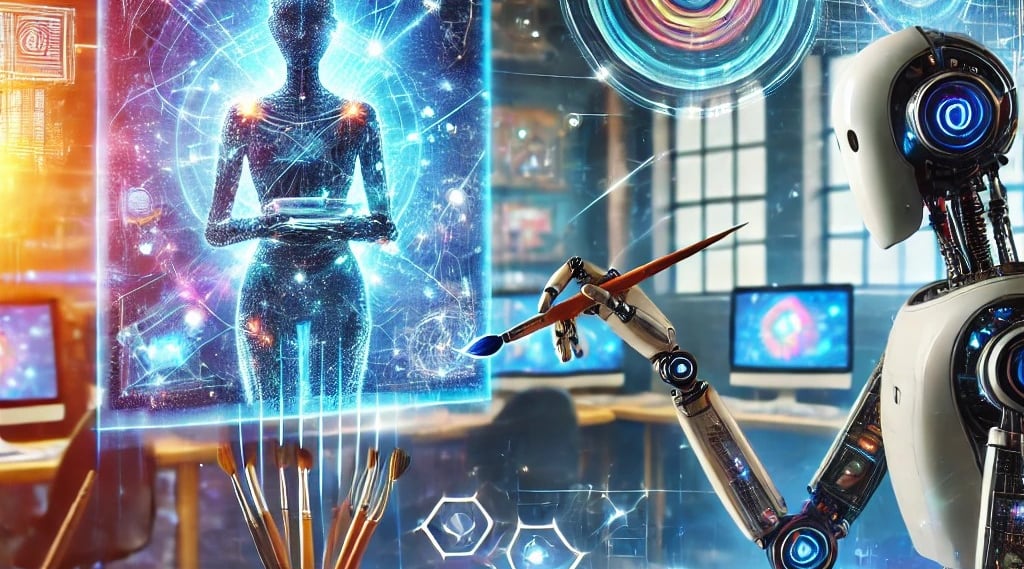Generative AI in Creativity: Shaping the Future of the Creative Industry
Generative AI is revolutionizing the creative industry, offering new possibilities in art, media, and entertainment. This article explores the ethical debates, such as copyright and authenticity, alongside opportunities for innovation, accessibility, and collaboration in the creative fields.
AI NEWS


The intersection of generative artificial intelligence (AI) and creativity is sparking vibrant discussions on its transformative potential in the creative industry. At the recent World Economic Forum (WEF), experts, artists, and technologists convened to explore the ethical and practical implications of AI’s integration into this dynamic field. From copyright debates to questions of authenticity, generative AI is reshaping how art, media, and storytelling are conceived and experienced.
Copyright Challenges in AI-Generated Content
One of the key discussions at WEF revolved around copyright and ownership of AI-generated content. As AI tools like DALL·E, MidJourney, and ChatGPT empower creators to produce unique works, they also raise critical questions:
Who owns AI-generated content?
Many argue that the creator who inputs the idea should retain ownership, while others contend that ownership should include the AI developers.
How do we protect original artists?
Concerns about AI mimicking specific artistic styles have prompted calls for stricter copyright regulations to safeguard creators.
The lack of clear legal frameworks is fostering debate and highlighting the need for global standards to govern the use of AI in creativity.
Authenticity and Digital Recreations
Another focal point of the WEF discussions was the authenticity of digital recreations, especially in the entertainment industry. Generative AI now enables hyper-realistic recreations of actors, raising ethical questions:
Is it ethical to recreate deceased actors in new roles?
While technology offers exciting possibilities, it also raises concerns about consent and legacy.
How does this impact storytelling?
The ability to digitally alter performances could blur the line between reality and fiction, challenging traditional notions of authenticity in art.
Opportunities and Ethical Considerations
Despite the challenges, generative AI offers unprecedented opportunities for creativity:
Enhanced Collaboration: AI tools can assist creators by generating ideas, automating repetitive tasks, and enabling new forms of artistic expression.
Increased Accessibility: AI democratizes creativity, allowing individuals without traditional artistic skills to participate in content creation.
However, the ethical considerations surrounding bias, transparency, and misuse of AI-generated content remain paramount. The WEF highlighted the importance of developing ethical guidelines to ensure AI’s responsible use in the creative industry.
The Path Forward: Balancing Innovation and Responsibility
As generative AI continues to evolve, the creative industry stands at a crossroads. The conversations at the World Economic Forum underline the need for collaboration among policymakers, technologists, and artists to address these complex issues. By establishing clear ethical standards and embracing innovation responsibly, the industry can harness AI’s potential while preserving the integrity of creative expression.
Generative AI is not just a tool; it’s a transformative force reshaping the boundaries of creativity. As we navigate this exciting frontier, the dialogue must remain focused on ensuring that technology serves humanity’s creative aspirations without compromising ethical values.
Concerning AI in creative, visit "AI in Entertainment: How It's Revolutionizing Movies, Music, and Gaming".